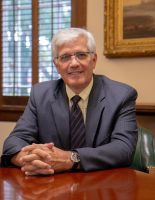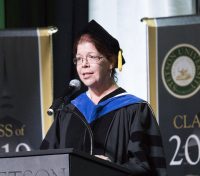FROM THE DIRECTOR OF THE FSEM EXPERIENCE
Dear FSEM Colleagues:
This email message is long overdue. I have been working relentlessly to understand the subtle and overt aspects of the FSEM course and program; the learning curve is steep, but I am enjoying the process.
Now that I feel a little more comfortable in my position as the director of the FSEM Experience, I would like to consider arranging intentional conversations with you about short- and long-term strategies to tackle the what, how, and why of FSEM within the context of the Quality Enhancement Plan. I believe small group settings is best for such discussions, and I will send out emails to small cohorts of +/- 6 faculty members to meet with me during October and November. In the interim, however, I would like to draw your attention to 3 time-sensitive items:
-
- After considerable thought, a decision has been made to cover some transportation costs associated with FSEM fieldtrips. If you are taking students on a field trip, you may provide transportation receipts (or mileage) for up to $100 for reimbursement. Please be aware that this support applies only to this year’s FSEM cycle because we anticipate having some money left in the budget. I will initiate discussions with the Provost’s Office for future years’ travel-related support. Please email me separately with questions or comments.
- Our end-of-FSEM-semester workshop and celebration of our work this semester is scheduled for Friday, November 16th from 2:30pm-4:30pm. Details will be sent once the agenda is confirmed. In the meantime, if you would like us to consider any agenda items, please email me separately.
- The FSEM program has not assessed two of its core learning outcomes (effective writing and oral competency) for many years, and it has not assessed two others (critical thinking and information literacy) ever. Our plan is to organize a series of workshops in the spring semester to address these learning outcomes. However, I have learned this week that in order to meet certain assessment targets, the writing and oral competency outcomes must be assessed across FSEM sections this semester. The effective writing outcome sampling will hardly impact the classroom environment, while the oral competency sampling process will involve videotaping, which will influence the classroom dynamics. Depending on the level of interest, I will organize a one-hour meeting with faculty who would like some guidance on how to assess these outcomes this semester; please email me separately if you are interested. For details on the assessment processes, see the messages below from Megan O’Neill and Lisa Coulter and email them and me with questions or comments.
I write to you in my role as Director of Assessment. As part of Stetson’s ongoing assessment of general education learning outcomes (GLOs) this fall we will be assessing the Speaking outcome ( see attached Rubric) in the FSEM courses. Within the next week, we will obtain a random sample of students in FSEM from Institutional Research who are chosen to provide samples for this assessment. I will contact those of you who have students selected in order to discuss the logistics of how this will be done. Thank you for your help in this important work.
FROM MEGAN O’NEILL:
I write to you in my role as Writing Program Director to remind you that we’re intending to assess FSEM writing this fall. This is the next (and almost last) step in the four-year assessment project we took on when Stetson’s writing requirement changed. So far, the assessment results have been promising; we’re still developing the big picture, but I assure you that our efforts–your efforts–are not being wasted. We’re doing good work, and I appreciate your involvement and your attention to student writing.
A quick reminder about how assessment works. By the middle of next week, FSEM instructors will get email from me with a student name and ID number. You’ll pick the assignment from that student that best suits the assessment purpose (in this case, it should be an assignment that both makes a point and offers some sort of research). You’ll render the assignment anonymous, and you’ll email it to me. In the rare cases when two students have been selected from your course, I’ll ask you to email me both artifacts (still anonymous) and let me know which one belongs to which student. That will take care of it for now; in coordination with the University Gen Ed Committee, we’ll gather for reading and scoring during the spring semester workshops. More details to come about that. 🙂
We have a really great opportunity this year. Stetson is participating in the VALUES Institute, which essentially means that a cadre of trained faculty associated with the AAC&U will also be scoring the samples, separately and apart from our own scoring. They’ll send us their results and we can compare the two sets of score data. The benefits of this kind of norming are obvious, and the Provost is very eager to see what we can do with this opportunity. For this round of assessment, then, faculty submitting writing samples will have a bit of additional thinking to do. In addition to providing the assignment sample itself, the VALUES Institute asks also for your assessment of the difficulty of the assignment, how you yourself would score it using the Written Communication rubric, and how much the assignment is worth in terms of total course grade. Fortunately, their form is easy to understand and complete.
When I email you with the names of your selected students, I’ll attach the form and ask you to fill it out. That document gets emailed to me with the writing sample.
Thanks for being a part of this work. Don’t hesitate to get in touch if you have anything to ask me or tell me!
See: https://www.stetson.edu/other/writing-program/media/AssessmentRubric.pdf
Enjoy the second-half of your semester!
Thank you for your commitment to the community of learning!
Ranjini Thaver, Ph.D. (Economics)
Director of the FSEM Experience
Professor, Department of Economics




